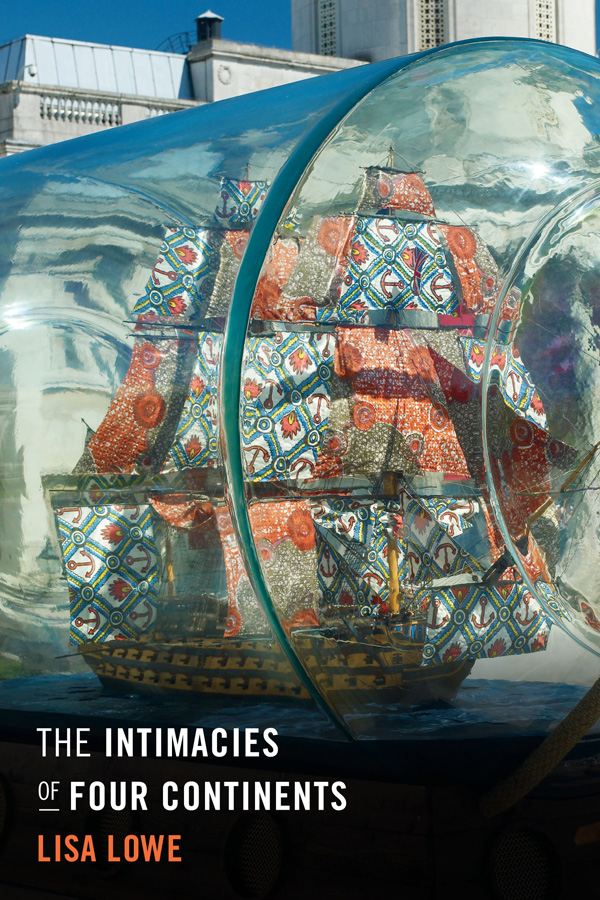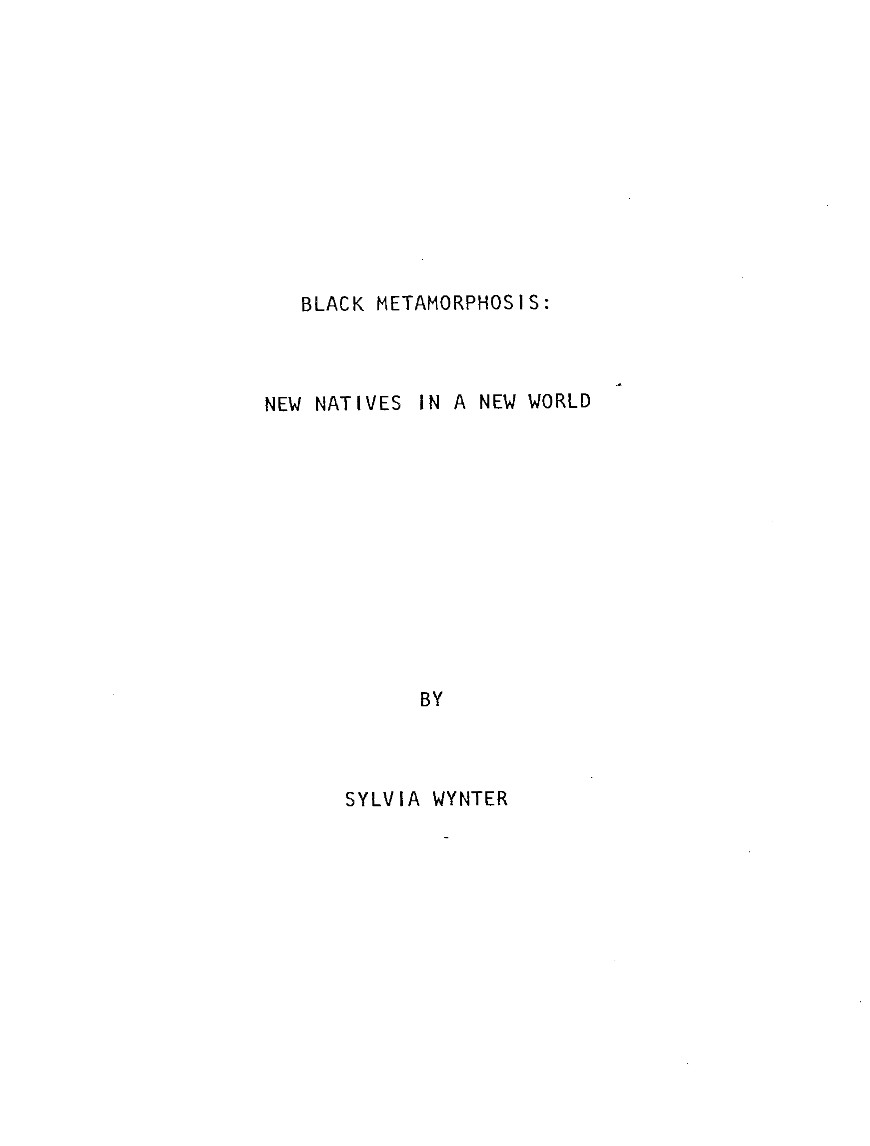October, 174: A Questionnaire on Decolonization (2020)
Filed under survey | Tags: · activism, art, black people, collecting, colonialism, decoloniality, decolonization, eurocentrism, history, imperialism, indigenous peoples, land, museum, postcolonialism, race, slavery, violence
“The term decolonize has gained a new life in recent art activism, as a radical challenge to the Eurocentrism of museums (in light of Native, Indigenous, and other epistemological perspectives) as well as in the museum’s structural relation to violence (either in its ties to oligarchic trustees or to corporations engaged in the business of war or environmental depredation). In calling forth the mid-twentieth-century period of decolonization as its historical point of reference, the word’s emphatic return is rhetorically powerful, and it corresponds to a parallel interest among scholars in a plural field of postcolonial or global modernisms. The exhortation to decolonize, however, is not uncontroversial-some believe it still carries a Eurocentric bias. Indeed, it has been proposed that, for the West, de-imperialization is perhaps even more urgent than decolonization.
What does the term decolonize mean to you in your work in activism, criticism, art, and/or scholarship? Why has it come to play such an urgent role in the neoliberal West? How can we link it historically with the political history of decolonization, and how does it work to translate postcolonial theory into a critique of the neocolonial contemporary art world?”
Respondents include Nana Adusei-Poku, Brook Andrew, Sampada Aranke, Ian Bethell-Bennett, Kader Attia, Andrea Carlson, Elise Y. Chagas, ISUMA, Iftikhar Dadi, Janet Dees, Nitasha Dhillon, Hannah Feldman, Josh T. Franco, David Garneau, Renee Green, Iman Issa, Arnold J. Kemp, Thomas Lax, Nancy Luxon, Nelson Maldonado-Torres, Saloni Mathur, Tiona Nekkia McClodden, Alan Michelson, Partha Mitter, Isabela Muci Barradas, Steven Nelson, Ugochukwu-Smooth C. Nzewi, Alessandro Petti, Paulina Pineda, Christopher Pinney, Elizabeth Povinelli, Ryan Rice, Andrew Ross, Paul Chaat Smith, Nancy Spector, Francoise Verges, Rocio Zambrana, and Joseph R. Zordan.
Edited by Huey Copeland, Hal Foster, David Joselit, and Pamela M. Lee
Publisher MIT Press, Fall 2020
Open access
ISSN 0162-2870
123 pages
Lisa Lowe: The Intimacies of Four Continents (2015)
Filed under book | Tags: · 1700s, 1800s, abolitionism, asia, black people, capitalism, colonialism, dialectic, governance, history, imperialism, indigenous peoples, intimacy, knowledge, labour, liberalism, marxism, narrative, race, slavery, trade, united states, violence

“In this uniquely interdisciplinary work, Lisa Lowe examines the relationships between Europe, Africa, Asia, and the Americas in the late eighteenth- and early nineteenth- centuries, exploring the links between colonialism, slavery, imperial trades and Western liberalism. Reading across archives, canons, and continents, Lowe connects the liberal narrative of freedom overcoming slavery to the expansion of Anglo-American empire, observing that abstract promises of freedom often obscure their embeddedness within colonial conditions. Race and social difference, Lowe contends, are enduring remainders of colonial processes through which “the human” is universalized and “freed” by liberal forms, while the peoples who create the conditions of possibility for that freedom are assimilated or forgotten. Analyzing the archive of liberalism alongside the colonial state archives from which it has been separated, Lowe offers new methods for interpreting the past, examining events well documented in archives, and those matters absent, whether actively suppressed or merely deemed insignificant. Lowe invents a mode of reading intimately, which defies accepted national boundaries and disrupts given chronologies, complicating our conceptions of history, politics, economics, and culture, and ultimately, knowledge itself.”
Publisher Duke University Press, Durham, NC, June 2015
ISBN 9780822358633, 0822358638
319 pages
Discussion: Gayatri Gopinath, Alyosha Goldstein, Moon-Ho Jung, Stephanie Smallwood (book roundtable at ASA Conference, Toronto, 2015, video).
Reviews: John Holmwood (Theory, Culture & Society, 2016), Betty Joseph (American Historical Review, 2016), Hossein Ayazi (Qui Parle, 2016), Michael Gaffney (Journal of American Studies, 2016), Adam Nemmers (Women’s Studies, 2016), Marion C. Rohrleitner (Pacific Historical Review, 2016), Lance Bertelsen (Modern Philology, 2017), Harrod J Suarez (Melus: Multi-Ethnic Literature of the U.S., 2017), Jesse van Amelsvoort (Nexus Instituut, n.d.), Hadley Howes (Antipode, 2020).
Sylvia Wynter: Black Metamorphosis: New Natives in a New World [1970s]
Filed under manuscript | Tags: · black people, body, caribbean, colonialism, critique, human, humanism, politics, resistance, slavery, theory

“Black Metamorphosis: New Natives in a New World is an unpublished manuscript written by Sylvia Wynter. The work is a seminal piece in Black Studies and uses diverse fields to explain Black experiences and presence in the Americas.
Throughout the 1970s and early 1980s, Wynter worked with the Center for Afro-American Studies (CAAS) at the University of California, Los Angeles (UCLA) to complete the project which was to be published by the Institute of the Black World. The manuscript presents early iterations of Wynter’s Theory of the Human and explores how Black experiences are essential to understanding the history of the New World.”
The only part of this manuscript that has been published is Wynter’s 1979 essay “Sambos and Minstrels”, though excerpts of and allusions to many of the other texts she wrote in the 1970s can be found in the manuscript, particularly “Jonkonnu in Jamaica” (1970), “Novel and History” (1971), “Ethno or Socio Poetics” (1976), “The Politics of Black Culture” (1977), and “In Quest of Matthew Bondman” (1981). … In the final 935-page manuscript, the page numbers break at page 251 and resume with page 370. The 120 missing pages correspond exactly to the number of pages in a series of descriptions of revolts by enslaved persons in Jamaica, and it appears that they were meant to be inserted at this point in the text.” (Kamugisha 2016)
Manuscript, written throughout the 1970s
[935] pages (252-369 missing)
Commentary and analysis: Derrick White (C.L.R. James Journal, 2010), Aaron Kamugisha, Demetrius L. Eudell, Greg Thomas, Katherine McKittrick, Tonya Haynes, Nijah Cunningham (Small Axe, 2016).
PDF (21 MB)
Comment (0)
